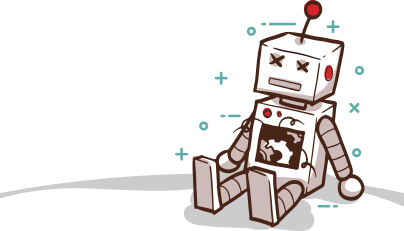
Do you think you will be using a personal computer for the rest of your life?
It might be too late to remove computers from our lives, but there's no need to be chained to a desk or even own a PC.
Replying "yes" to that might be vaguely depressing. How many cumulative hours will you spend hunched over a monitor? But then once personal computing and online communications have been installed into your life, they're hard to uninstall.
So let's refine the question: Will you own a personal computer for the rest of your life? Maybe it's too late to stop needing computers, but is it necessary to actually own one now that they're so ubiquitous?
The same question is being asked about automobiles.
Why own a car if you only need one occasionally? Car-sharing programs like Flexcar have spread rapidly in gridlocked cities from London and Los Angeles to Tokyo. With these programs you get access to fleets of cars located around the city. Many urbanites have happily ditched their own wheels in favor of such programs.
Computer-sharing is even easier. It requires no membership program. You simply use computers wherever you find them, either by keeping all your data online or on a USB flash drive that holds all your files, applications and settings.
Both approaches are becoming increasingly viable, and combined they're even more effective. But why bother?
Green shoots to sharing apps
Environmental concerns might come to mind. Witness the slum residents in India who face toxic exposure while recycling computer parts. Recent gatherings like the Greener Gadgets Conference in New York highlight the concerns.
Few consumers, though, are likely to sacrifice their gadgets just for the sake of being green.
"They may be buying expensive solar panels and hybrid cars, but I don't see them giving up their laptops and iMacs any time soon," says Michal Ann Strahilevitz, a marketing professor at Golden Gate University in San Francisco who studies consumer interest in green issues.
There are other reasons to not own a computer. If you're a road warrior lugging around a laptop all the time, you've surely dreamed of getting that monkey off your shoulder. Indeed the people who particularly love the idea of portable applications on a USB flash drive are not environmentalists, but road warriors plotting an escape from laptop bondage.
There's a whole ecosystem now of portable applications and online forums catering to these folks. And it's not just USB flash drives that can be used: iPods and cheap portable hard drives work just as well as long as they can plug into a USB port.
If you frequently have access to available computers, this approach can work -- and boost your green credentials.
"The idea of a system-and-apps-on-a-USB key is a green plus," notes Jeff Yang, a consultant with trend research firm Iconoculture. And, he adds, "that's where the iPod/iPhone is going. It'll end up being a complete lifestyle management device, not just a media platform."
Don't Miss
Digital Biz
The advantages to portable applications are real. All the settings and data associated with the applications stay on the drive, leaving no trace of your presence on a host computer. Many of these drives have finger-print identification built in, which improves security.
And everything associated with an application stays in a single folder, meaning you can back up your email -- and all its associated files and settings -- simply by copying that one folder to another drive. (For this reason some people are using portable apps on their desktop computers.)
The downside is that you always need other people's computers (and their USB ports) to be accessible wherever you are. Computers in Internet cafes, airports and libraries are options, but sometimes they're locked away inside a cabinet to prevent tampering, leaving you with only the keyboard and monitor.
Keeping your life online
In those cases, having all your stuff online might be useful.
A startup service called Jooce gives you a private online desktop where you can keep all your files and folders. It was created partly for the developing world, where it's not uncommon for an entire village to share a single cell phone.
With Jooce, hundreds of people can have their own profiles on a single computer. Any computer becomes your computer. The idea also works for people in the developed world who hop from one Internet cafe to another.
Bigger players offer Web-based software and folder space as well. See the Google Apps suite, for instance. The most obvious drawback with such services is that you can't always get online. (Security and limited capabilities are also concerns.)
And, unlike owning a flash drive in lieu of a personal computer, using such services are not necessarily any greener.
"They shift the power drain from the consumer end back to enormous server farms that have become incredible energy-sucks," notes Yang. "And you still need a computer to access them."
Another way to avoid PC ownership is to recognize that you might already have two: your PDA is the other one.
Many of today's PDAs trounce the desktop computers of old in both speed and memory, and pocket versions of common software is available for them. Attach a foldable keyboard and you've got a nice little computer -- with a screen that's way too small.
But this too is being worked on. Micro-projectors that can project your screen onto any flat wall might soon be readily available.
In the meantime products like the Redfly Mobile Companion take another approach. The Redfly has the shape of a laptop computer, but the processor and the applications are all on your PDA, which connects via a USB cable.
The device is basically an empty shell that adds a laptop-like screen and keyboard -- and even USB slots -- to your PDA.
Of course PC sales are in no imminent danger. Most people, if given the choice, would quite sensibly opt for their own PC. Research firm IDC projects strong PC sales growth worldwide for the next few years.
Still, it's nice to know that a future is taking shape where owning a computer, like owning a car, is not completely necessary -- even if using one is.
------------------------------------------------
© 2008 Cable News Network. A Time Warner Company












